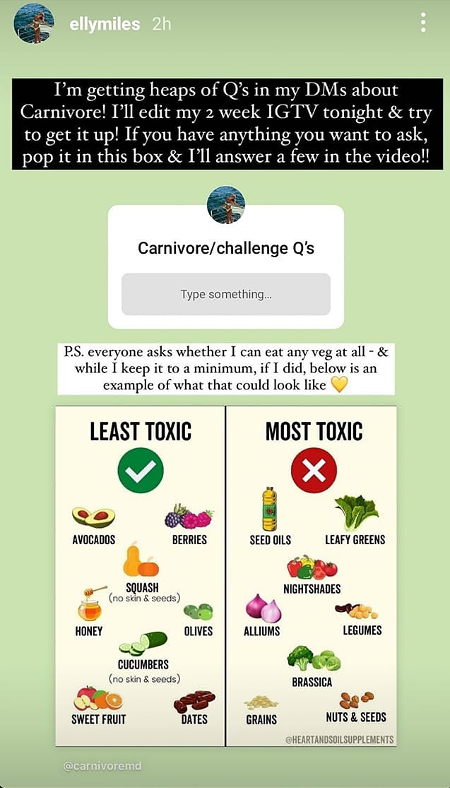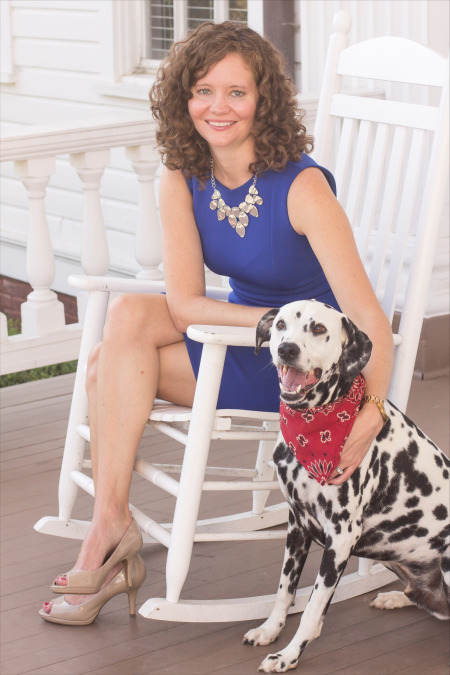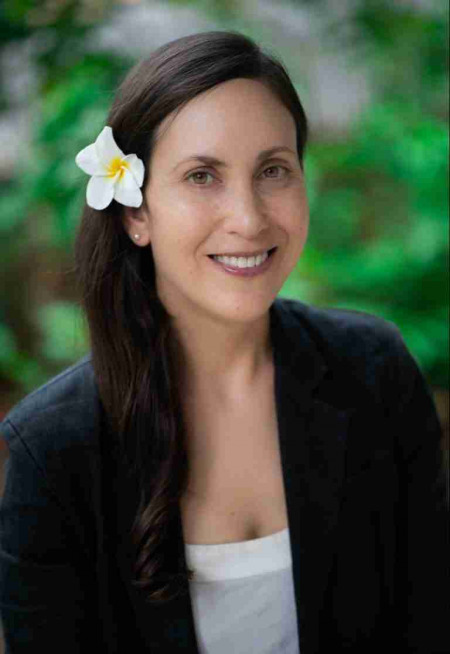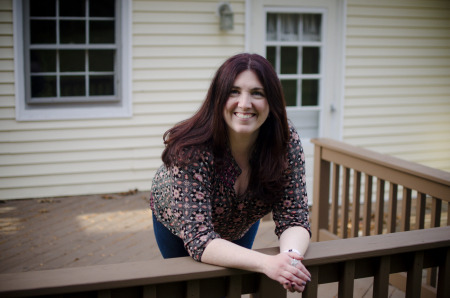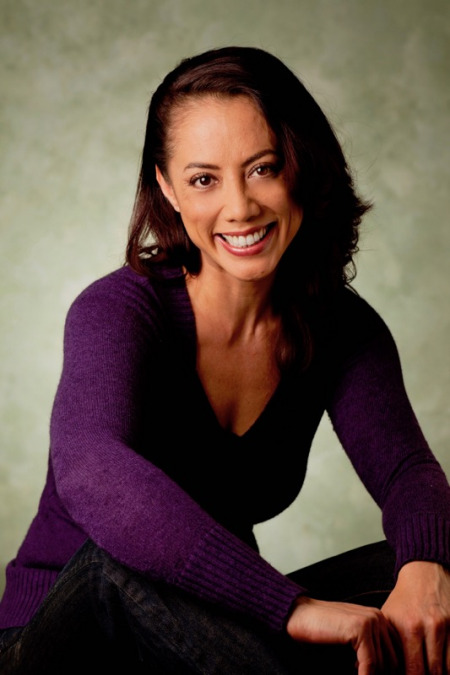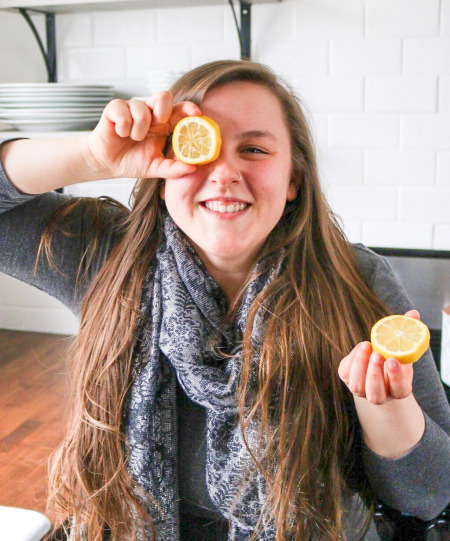For all of its destruction, the pandemic has, in some ways, been a gift. There’s something about shared tragedy that forges a bond among people who might otherwise never connect, might never even notice each other.
Now, we keenly recognize how fragile and ephemeral our lives really are, and no amount of wealth makes us invincible. With our confidence shaken, we’re forced to question the way we’ve been living our lives, to squirm uncomfortably at how we’ve been marching autonomically through them. The pandemic places us squarely in front of our own reflections and compels us to reevaluate those things, especially intangible, that are most important to us — and to let go of those things that are not.
In the midst of all this existential contemplation and cleansing, I was glad to see some societal obsessions fall by the wayside. For instance, burned-out workers stopped tirelessly chasing the rat race and elevating their jobs above their families.
The so-called Great Resignation is symbolic of a massive perceptual shift, an indictment of toxic work culture in favor of more free-thought and flexibility. Millennials and Gen Z-ers have at last joined forces to expose the “American Dream” for its long-shrouded premise of greed and exploitation.
Just joined the #greatresignation. Tomorrow I start a new life as a freelance writer. I’ve been dancing around this idea for years, but was always too nervous to leave the safety of paid employment. The last two years has disabused me of that notion.
Now is the time to be brave.— 🌸 Freedom Writer 🌸 🇬🇧🇮🇱 (@venviscri) December 19, 2021
Yet even during these tumultuous times, a few unhealthy societal obsessions have remained pervasive. In the case of diet culture, not only is the obsession with weight loss just as endemic as ever; the preoccupation seems to have exploded like the virus itself. At first, the weight-focused jokes seemed innocuous enough: friends and family were fighting the “covid 19 pounds”; some called it the “quarantine 15”; and others compared their pandemic pudge to the obesity struggles of “My 600-Lb Life.”
But these jokes, as light-hearted as they seemed, reflected a very real anxiety, one that was already heightened from fear and uncertainty related to covid-19. Prolonged social isolation left us panicked, vulnerable, and susceptible to unhealthy coping mechanisms like stress eating. Sure, we may have put on a few pounds during the pandemic, but in a world that is still being ravaged by a deadly virus – in the midst of a global health crisis – should we really agonize over whether we’ve gone up a size in jeans?
the weight loss discourse during COVID was hell, and i expect that the weight loss discourse after COVID will be even worse. no one cares that you gained some weight during the pandemic! you’re going to be okay! go for a walk and eat a pretzel, jesus christ.
— scaachi (@Scaachi) March 22, 2021
Unfortunately, much of social media would have us believe that we should. Like opportunistic vultures hovering overhead, diet evangelists and fitfluencers have been quick to swoop in and prey on our deepest vulnerabilities. “Detox, keto, and fasting, oh my! Which pandemic fad diet do you want to try?”
I thought I’d heard of them all, until I stumbled upon the all-meat “Carnivore Diet” peddled by Australia’s former Bachelorette. Now an influencer with more than 200k followers, the ebullient Elly Miles urged her loyal fans to shed pandemic pounds by reframing fruits and vegetables as “toxic” foods.
When we’re scared and vulnerable — not to mention overwhelmed enough with learning the Greek alphabet just to keep track of the newest virus variants — we become easy targets for the real toxic weapon of our time: misinformation. When this misinformation informs how we treat our own bodies, such as by subscribing to the latest fat-burning fad, we’re putting our own health and well-being at risk.
What starts as an innocent joke about flattening the curve of our tummies, quickly erupts into a sort of weight-crazed hysteria. And when the diet discourse on social media is so dominated by non-health professionals, it can be hard for the rest of us to separate the signal from the noise.
In this technological world where diet culture runs so rampant, now is the time to ditch the juice detox and try a social media detox — at least from the body-shaming fitfluencers who capitalize on our insecurities. Instead of turning to @wwpounddropper for advice on reclaiming your pre-pandemic waist, strive to make peace with your body and nourish it with the nutrition to heal during these stressful times. Instead of fixating on which foods to eliminate to jump into your old jeans, focus on filling up with those that will nurture your mind, body, and soul.
But don’t take our word for it — look to the real-life nutrition experts, the health professionals who do have the credentials to back up their claims. These are the coaches, dietitians, and doctors you should follow for evidence-based nutrition advice, wisdom that affirms wellness culture over diet culture. These educated professionals have plenty of guidance to share — but they’re often overshadowed by impostors peddling a product or fostering a fad.
Here, we’ve compiled a diverse sample of women experts on the web you can trust if you’re seeking solid nutrition advice, especially in the context of women’s health. And while they come from a variety of backgrounds, these wise women have one major thing in common: they despise toxic diet culture as much as we do, and their approaches to achieving wellness won’t center around weight loss.
In alphabetical order by first name, here are our enlightened experts:

Aimee Tyler-Smith, R.D., B.Ed.
Aimee is a registered dietitian who specializes in conception, pregnancy, postpartum, and infant nutrition. Her focus is on helping women thrive throughout pregnancy with science-based nutrition that fosters a healthy relationship with food. Aimee offers both one-on-one prenatal nutrition coaching and group programs to guide women through pregnancy, postpartum, and motherhood using an anti-diet, health-at-every-size (HAES) approach.
Aimee’s Philosophy
“We believe that food is more than just nutrition. Mamas should be able to enjoy the journey through pregnancy without worrying about every morsel of food they consume, without feeling stressed about eating the ‘wrong thing’ or anxious about others commenting on their body or weight.
“We believe that food should be enjoyed. Mamas CAN feel confident in their food choices, without food rules and restrictive dieting, and at peace with their relationship with food. We help to support parents in ditching diet culture at any stage in the journey, from conception and fertility, through pregnancy and into postpartum. We practice from an anti-diet, weight-neutral approach – because diets and restriction don’t work and health cannot be defined by a number. We believe that the choices we make now can influence the relationships our children have with food and their body. We help to guide and support parents who are ready to end the generational cycle of dieting and show them how to focus on a healthy relationship with food for their children from the very beginning.”
Follow Aimee on Instagram, on Facebook, and at www.mamababynutrition.ca.
Alissa Rumsey, M.S., R.D., C.D.N., C.S.C.S.
Alissa is a registered dietitian who specializes in intuitive eating coaching, weight-inclusive nutrition care, and body image healing. She offers virtual intuitive eating and non-diet nutrition coaching, group programs, and online courses to help women break free from the shame and pain of chronic dieting. Alissa is the author of the book Unapologetic Eating, which guides women through the process of reconnecting with their bodies by making peace with food.
Alissa’s Philosophy
“I believe that all bodies are inherently worthy, that you are not a problem to be ‘fixed’, and that health, nutrition, and well-being are not ‘one size fits all.’ What I’ve learned in my years working with clients is that what presents as a problem with food or body image is much more deeply rooted. You may feel out of control around food, or think that you have no willpower, or feel like you need to lose weight in order to be healthy, happy, or accepted. But the problem is not you: the problem is our oppressive culture that was not built for us to thrive and instead conditions us to feel body shame and disconnection.
“Divesting from diet culture and committing to healing is deep, brave, and oftentimes scary work. My team and I help people get to the root of their food and body image struggles and support them as they move away from dieting and come home to their bodies. In our work together, I help my clients build more self-awareness, reconnect with their body’s inner wisdom, learn to trust themselves again, and not let their body hold them back from living out their most authentic, unapologetic life.”
Follow Alissa on Instagram, on Facebook, and at www.alissarumsey.com.
Cortney Berling, M.P.H., R.D., C.D.E.
Cortney is a performance dietitian and running coach who helps female runners improve their relationship with food and fuel their athletic training right. She offers one-on-one nutrition coaching, personalized run coaching, and a one-time course called Fuel Like A Runner. Cortney’s mission is to empower female athletes to respect their bodies, eat intuitively, and ultimately enjoy life.
Cortney’s Philosophy: “I believe food should be functional and fun! Food should not cause you guilt/fear/shame, and it definitely should not consume all of your mental space throughout the day. I teach my runners how to balance intuitive eating with sports nutrition. They learn how to honor their hunger, respect their bodies, and stop calorie counting for good! I encourage them to ditch the scale because weight does not determine their self-worth or their ability to run.
“Once my runners have the foundation of intuitive eating laid out we can then apply specific sports nutrition practices such as when, why, and what to eat before/during/after training to improve their performance. Diet culture would tell you that you need to be thin to win a race, but that couldn’t be further from the truth. I believe we need to be strong and well fueled to perform our best.”
Follow Cortney on Instagram, on Facebook, and at www.flowcode.com/page/eatwell.runbetter.
Cristina Caldwell, M.S., C.I.S.S.N.

As a sports nutritionist, exercise physiologist, and athletic coach, Cristina specializes in helping triathletes and runners incorporate science-based training and nutrition into their routines. She focuses on prioritizing quality over quantity in training sessions, injury prevention through strength work and periodization, and optimization of nutrition in daily life and training. While she works with both men and women, Cristina has completed additional certifications specific to female physiology and nutrition and menopause for athletes.
Cristina’s Philosophy
“I believe that nutrition and health go hand in hand, and together they complement each other. It’s important to find a balance in your nutrition and your life. No foods are off-limits and diets will not serve you. Health is found when we eat a balanced plate with foods coming from fruits, vegetables, nuts/seeds, legumes, and lean proteins if desired. Change doesn’t happen overnight, but by making small changes consistently, you achieve the goals you’re shooting for. I do not encourage restrictive diets or ‘named’ diets and instead, we choose foods in portions that we know will serve your overall health and well-being.”
Follow Cristina on Instagram, on Facebook, and at www.fueledcoaching.com and www.teamfueledracing.com.
Jennifer Anderson, M.S.P.H., R.D.N.
Jennifer is a registered dietitian who specializes in child nutrition, particularly by helping parents reduce mealtime stress with children who are picky eaters. She also guides adults through the process of re-teaching their “inner child” how to approach nutrition in an anti-diet, weight-neutral way. Jennifer’s team has provided multiple picky eater food guides and offers a BetterBites Picky Eating Course with strategies and tips to eat happier.
Jennifer’s Philosophy
“As a registered dietitian, I deeply understand how food supports each person’s health, culture, and personal experience. I know what we eat is important, and equally important is how we talk about food. To moralize or categorize food in terms like ‘good/bad food’ or ‘healthy/unhealthy foods’ as the larger ‘diet culture’ does, is to lose the nuances of eating. Any food can be good or bad for a person depending on their personal context. Instead, we can use our rich language and our knowledge about foods. ‘Carrots support my night vision’ is so much more health-centric than ‘Carrots are low-calorie.’ When we use neutral language to discuss foods, we open up ourselves to a broader definition of health for ourselves, we stigmatize others less, and we protect the future generation from diet culture.”
Follow Jennifer on Instagram and at kidseatincolor.com.
Jenny Askew, M.S., R.D., L.D., A.C.S.M.-E.P.-C.
Jenny is a registered and licensed dietitian and exercise physiologist whose nutrition practice focuses on promoting digestive health. Her team offers several programs to restore gut health, reduce inflammation, and lose weight without restrictive diets. She also provides personalized packages and runs The Functional Nutrition Blog.
Jenny’s Philosophy
“We use food to help the body heal and find balance. If everything is working as it should in the body (balanced hormones, good digestion, sufficient nutrient status, no underlying or hidden infections) and as long as you’re moving, managing stress, and eating a balanced diet, your weight will manage itself. Everyone’s body has a weight it will find that’s healthy and easy to manage once all of the right pieces are in place.
“Conventional medicine misses the mark on a lot of these things, either by accepting too wide a range of acceptable lab markers or by handing out a ‘pill for an ill’ and masking underlying imbalances in the body. People go on restrictive diets, which can further drive stress in the body, and come to us frustrated when, no matter how little they eat, they either gain weight or can’t seem to lose weight.”
Follow Jenny at nutritionfordigestivehealing.com.
Jinan Banna, Ph.D., R.D.
Jinan is a registered dietitian and professor of nutrition at the University of Hawaii. She offers group nutrition coaching, individual coaching, and workshops and lectures for professionals. Jinan’s guiding principles include making small changes, viewing healthy eating as a lifestyle, eliminating “cheat days,” and accepting that eating brings joy. Jinan also conducts research on obesity prevention in underserved populations.
Jinan’s Philosophy
“My philosophy is to re-frame your mindset around eating — instead of considering it “cheating” when you eat foods you enjoy, think about it being okay to continue to eat what you love. You can be mindful of what and how much you are eating and think about treats in the context of your diet. As long as you have a balance between all the food groups, eat a variety, and don’t have too much sugar, saturated fat, and sodium, you should be able to meet your goals for weight and health! Thinking about it that way will help you to make changes you can sustain.”
Follow Jinan on Instagram, on Facebook, and at www.jinanbanna.com.
Kayli Anderson, M.S., R.D.N., Dip. A.C.L.M., A.C.S.M.-E.P.
Kayli is a registered dietitian who strives to empower struggling women to find peace and enjoyment with food and their health. She specializes in the areas of natural foods cooking, sports nutrition, intuitive eating therapy, lifestyle medicine, and exercise physiology. Kayli offers a free mini-course, Foundational Foods For Women; a paid course, Plant-Based Nutrition And Wellness For Women; and one-on-one nutrition coaching for women.
Kayli’s Philosophy
“As a non-diet dietitian, I believe that the women I work with deserve a relationship with food that brings them pleasure, nourishment, and peace. I’ve specialized in plant-based nutrition for a decade and grew deeply frustrated with the diet-focused messaging in the field, especially the messages targeted at women, so I’m on a mission to change that. The women I work with choose to eat more plant based for many reasons — health, environment, ethics — and I help them untangle diet dogma from their food values, learn how to nourish themselves through all phases of their lives, and befriend their bodies. As a Certified Intuitive Eating Counselor, I help my clients reconnect with their inner wisdom to guide their food choices so they no longer fall into the trap of outsourcing their power to the diet industry.”
Follow Kayli on Instagram and at www.kaylianderson.com.
Paula Doebrich, M.P.H., R.D.N.
Paula is a registered dietitian nutritionist who aims to empower chronic dieters to adopt and enjoy a lifestyle that works long-term. With a focus on innovative science, her practice uses nutrigenomics (DNA testing) to inform personalized goals for each client she works with. Paula has also contributed in her community to public health programs and research including in diabetes prevention and food insecurity.
Paula’s Philosophy
“I work with my clients to change their mindset towards dieting. It’s not so much an anti-diet approach as a diet-neutral approach. This means that weight loss is not a key element, but it’s also okay to desire to lose a few pounds, if it is done in a healthy way. We are so conditioned to believe that the number one indicator for health is weight loss; however, it simply isn’t. There are many ways to measure health and weight is one of the poorest ones.
“Many of my clients are so-called ‘chronic dieters,’ which means they spent years going on and off diets. When they find me, they are at a tipping point that many dieters reach when they realize the frustration and guilt of the endless diet-binge cycle is too much. I help people unlearn the unhealthy behaviors that have persisted for years — this, of course, is a long journey for most. People are used to promises of quick results, and anything that doesn’t show effects after a week seems to be not working — so making peace with the long journey ahead is usually step number one. I wish more people would understand that no significant change can happen quickly. Quick weight loss only results in quick weight regain, which most of my clients can relate to. The truth is that once we let go of this desire to be thin and start implementing good behaviors — self-care, a healthy sleep hygiene, joyful movement, and mindful eating — any excess weight will come off naturally.”
Follow Paula on Instagram, on Facebook, and at www.happeanutrition.com.
Sandy Younan Brikho, M.D.A., R.D.N.
Sandy is a registered dietitian nutritionist whose virtual private practice inspires women to reach their weight-loss goals without dieting. Stemming from her own prior experience with poor body image and negative mindset, she designed a weight loss program to help women achieve confidence in their own skin in a fun, sustainable, and easy-to-follow way. Sandy’s coaching program includes biweekly online sessions, personalized goal setting, and weekly feedback.
Sandy’s Philosophy
“Dieting is restrictive, boring, unhealthy, and oftentimes leads to weight regain. Through my private practice, I use science-based evidence to teach clients how to lose weight without dieting and how to incorporate their favorite foods in their diet while losing weight. I strongly believe that no one should have to sacrifice their favorite foods to lose weight and that following a balanced diet is the key to reaching your goals.
“Diet culture is unhealthy and promotes fad diets that give you only short term success, only for you to regain all the weight you lost once you stop following that diet. That isn’t realistic and it is not something that is maintainable long-term. Lose weight without dieting for long-term success!”
Follow Sandy on Instagram and at www.thedishonnutrition.com.
Sarah Skovran, R.D.N., L.D.
Sarah is a registered dietitian nutritionist who channeled her experience parenting an allergic child into a specialization in teen sports nutrition, child feeding, and plant-based eating for children. She emphasizes an approach that is anti-diet, weight neutral, and through a HAES lens. Sarah recently started a blog for plant-based teen athletes, where her writing focuses on nutrition, fun, and performance without regard to size, weight, or shape.
Sarah’s Philosophy
“I see clients for a variety of issues, but one service I don’t provide is weight-loss. All appointments (whether for teen sports nutrition, plant-based diets, child feeding, intuitive eating, disordered eating, or anything else) are approached through a 100% weight-neutral lens. My goals for my clients are that they have peace with themselves and how they relate to food while confidently (and as simply as possible) managing any medical or lifestyle realities they’re dealing with.”
Follow Sarah at sarahskovrannutrition.com and plantpoweredteens.org.
Supatra Tovar, Psy.D., R.D.
Supatra is a holistic-health clinical psychologist and registered dietitian who specializes in healing disordered eating and eating disorders. She strives to help clients reject diet culture and practice mindfulness and mindful eating as the path to wellness. Supatra is currently writing an online course, Deprogram Diet Culture, that she expects to release next year. She integrates her dietetics practice with cognitive behavioral therapy (CBT) and other modalities to help individuals and families meet their health and wellness goals.
Supatra’s Philosophy
“When I was in my teens, I witnessed up close and firsthand a very close person to me experience the horrible effects of bulimia nervosa. This experience planted the desire in me to help people suffering from disordered eating, as I had never personally had any issues with eating growing up. I went on to study pre-med and biology in college as a result, thinking I may go to medical school. After college I moved to Los Angeles and became a Pilates instructor and was once again set aback by clients who experienced disordered eating. This was when I really became versed in the detrimental effects that diet culture has on everyone. My experiences with these clients inspired me to study nutritional science and become a dietitian. Despite having significant training and education in treating these disorders from a nutritional perspective, I still lacked the scope of practice needed to understand the root causes of these disorders, so I went on to get my doctorate in clinical psychology.
“Along the way, I studied these disorders to understand their causes, and each path led me to one destination: diet culture and its effects and influences on all of us. Granted, there are many different causes of eating disorders, but our culture as a whole is inundated with messaging that tells us we are never good enough, thin enough, or wealthy enough to be accepted. It has become my mission to dispel these notions, both as a path toward healing people with these disorders, but also as a way to free everyone from these limited confines.”
Follow Supatra on Instagram, on Facebook, and at drsupatratovar.com.
Tayler Silfverduk, R.D.N.
Tayler is a registered dietitian nutritionist whose passion is to help people with celiac disease find love for food and for themselves. Inspired by her personal experience living with celiac, Tayler helps clients gain confidence in their gluten-free lifestyle using the least amount of stress and restriction possible. She offers virtual support groups, online courses, virtual group programs, and virtual intensive individual support.
Tayler’s Philosophy
“As someone who’s lived with celiac for ~10 years now, I’ve seen the harms of dieting on the celiac population firsthand. Diet culture has used the only treatment for celiac as a fad diet to sell to the general population. With that comes a lot of stigma and pressure on those who are medically following the diet, from doctors not believing celiac patients are sick, to prioritizing weight loss over renourishment of celiacs, to the gluten-free community pushing people to avoid gluten-free alternatives. Diet culture has harmed the celiac community, and I’m passionate about giving celiacs their lives back not just from celiac, but also from dieting and negative body image that’s often worsened with a diagnosis.”
Follow Tayler on Instagram and at tayler.silfverduk.us.

What has been your experience with diet culture, especially during the pandemic? Share your thoughts and stories in the comments.
Looking For More Ways To Stay Healthy & Happy? Check These Out:

